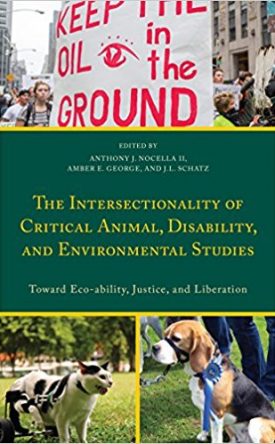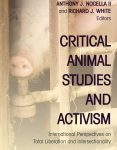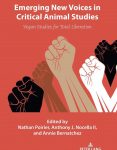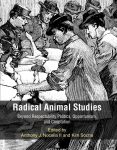Description
Review
What a fascinating opportunity for making reciprocal connections between authentic inclusion in Nature and its parallels in human society. In this one book we are poignantly offered ideas about how we can change our socially constructed illusions about normalcy as relate to “ability-diversity” in both sociological and ecological relationships for the sake of a healthier world for all. (Wahinkepe Topa (Four Arrows), author of “Teaching Truly: A Curriculum to Indigenize Mainstream Education”)
This collection pushes the boundaries of critical scholarship. It challenged me to think differently about my own work and my everyday life in ways that not many other collections have. Anyone working in justice studies should read this text. (Kevin Walby, Associate Professor and Chancellor’s Research Chair in the Department of Criminal Justice at University of Winnipeg)
In a world that grows more divided we attempt to ‘fence off’ or exclude those who we consider different. In the world of the animal, both human and non-human, indeed the earth itself, this act of exclusion wreaks havoc on the interconnectedness or interdependency of all concerned. However the reader will find The Intersectionality of Critical Animal, Disability, and Environmental Studies:Toward Eco-ability, Justice, and Liberation challenges this development by investigating these divisions and their social constructed-ness, throwing light upon their roots and giving thought to the urgent and necessary responses. (Carolyn Drew, professor, University of Canberra College, University of Canberra)
The Intersectionality of Critical Animal, Disability, and Environmental Studies is a cutting-edge and thorough collection of essays that advances the movement and field of eco-ability. This book is excellent for intersectional social justice scholars looking for new ways of examining oppression. (Erik Juergensmeyer, Editor, “Green Theory and Praxis Journal”)
The Intersectionality of Critical Animal, Disability, and Environmental Studies:Toward Eco-ability, Justice, and Liberation is a wonderful theoretical examination of how we can work to liberate more oppressed groups, while being working for total liberation. This book is a must read for scholar dedicated to social justice and peace. (Breeah Kinsella, Board-Member, Durango Peace and Justice)
The Intersectionality of Critical Animal, Disability, and Environmental Studies fills a much needed gap in the environmental activist literature with respect to combining intersectional justice issues aimed at challenging environmentalist and animal advocates to confront their ableist discourse practices. (Mark Seis, Associate Professor, Fort Lewis College)
The Intersectionality of Critical Animal, Disability, and Environmental Studies:Toward Eco-ability, Justice, and Liberation is a vital reminder that recognizing the interconnectedness of all oppressions is the first step in creating a transformative and just world. This text challenges perception and provides crucial expansions to our current definitions of who can be included in circles of compassion. (Meneka Thirukkumaran, Board-Member, Students for Critical Animal Studies)
This is a must-read for anyone interested in the emerging eco-ability movement. This collection of essays weaves together scholarly analysis, critical theory, political critique, and personal narrative while addressing an intersection of issues—everything from socionormative assumptions about differently-abled bodies and the profit motive for animal exploitation to media representations of queerness and heated debates within both mainstream and radical environmental movements. This book is no doubt an interesting, provocative read! (Jason Del Gandio, author of “Rhetoric for Radicals: A Handbook for 21st Century Activists”)
Most intersectional scholarship does not go beyond the human, so it is wonderful to see a book that critically analyzes ableism alongside speciesism and anthropocentrism and that seeks a relational community that is fully inclusive. This book is an important contribution to the nascent field of eco-ability. (Constance L. Russell, Associate Professor, Faculty of Education, Lakehead University)
About the Author
JL Schatz is the director of speech and debate and lecturer of English and feminist evolutionary theory at Binghamton University.
Amber E. George is instructor of philosophy at Misericordia University and editor of the Journal for Critical Animal Studies.
Anthony J. Nocella II is assistant professor in sociology and criminology, gender and women’s studies, and environmental studies at Fort Lewis College and editor of the Peace Studies Journal.
Visited 3477 times , 8 Visits today




Comments are closed, but trackbacks and pingbacks are open.